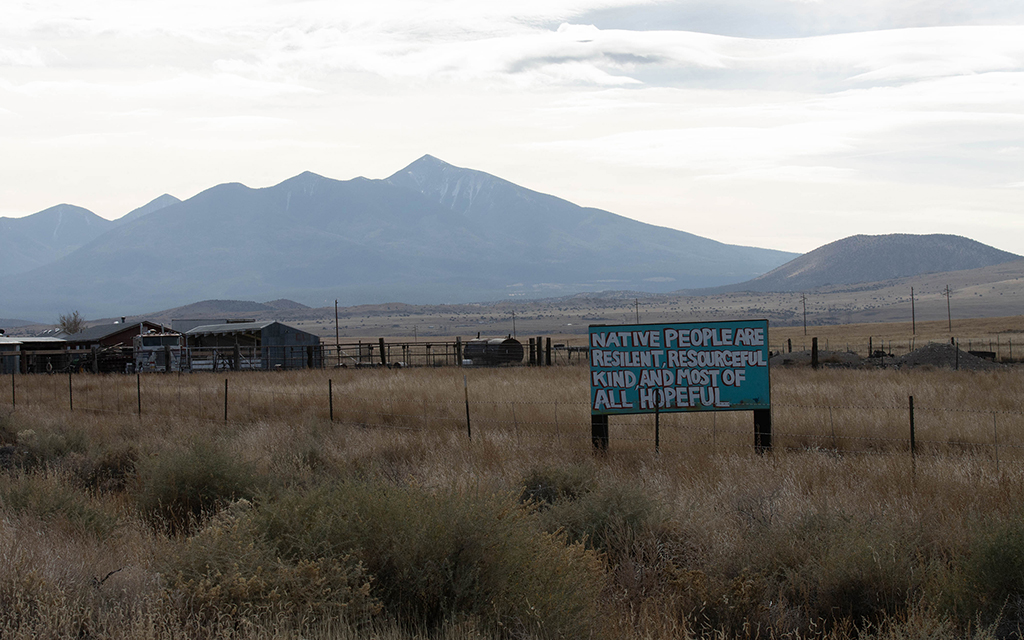PHOENIX – Our communities, our cultures and our language are constantly changing – and we want to ensure Cronkite News continues to reflect those changes.
Our newsroom recently changed the name of one of our main topics – Indian Country – to Indigenous Communities. The reason: The term Indigenous is viewed by many as more inclusive.
“Using the more inclusive term of ‘Indigenous’ is an acknowledgement of the cultural preservation and reclamation efforts made not only by Indigenous peoples in the United States and greater North America, but from around the world as well,” said journalism student and former Cronkite News reporter Chad Bradley, Diné, Tábąąhá nishłį́ Tódich’ii’nii bashishchiin. “It’s important to be aware and mindful of these communities, their struggles, their successes and their stories.”
Other groups have wrestled with this decision, and Cronkite News didn’t make this change lightly. We understand there’s great pride in “Indian Country,” and the name change doesn’t mean we’ll stop using it in coverage.
In fact, the National Congress of American Indians noted that Indian Country is “leveraged broadly as a general description of Native spaces and places within the United States, and it is inclusive of the hundreds of tribal nations that occupy these spaces.” It said the term is used in positive ways within Native communities, organizations and news organizations: “When used appropriately, Indian Country takes on a powerful meaning, legally and symbolically, for all tribal nations.”
That said, we also recognize Cronkite News’ coverage doesn’t – and shouldn’t – stop at U.S. borders.
Last year, the Native American Journalists Association asked its members to consider updating the group’s name from the Native American Journalists Association to the Indigenous Journalists Association. On its website, the group said the change would recognize “the need to develop relationships, contacts, and cooperation across international borders and reflects a desire to align terminology with the United Nations Declaration on the Rights of Indigenous Peoples.”
Rebecca Landsberry-Baker, the association’s executive director, said the survey results showed members favored changing the name, but the organization is still using the Native American Journalists Association name.
Indian Country Today in June changed its name to ICT. ICT, which is housed at the Cronkite School, is a nonprofit news organization that serves Indigenous communities. In a letter to its audiences, the outlet acknowledged the debate but said young people “have a clear idea of who they are” and their mission is to build the next generation of storytellers.
Sierra Alvarez, a journalism student and former Cronkite News journalist, said she also supports the changes.
“Indigenous peoples is a great term as it is more diverse and includes more communities in it,” she said.
– Christina Leonard, executive editor, Cronkite News
